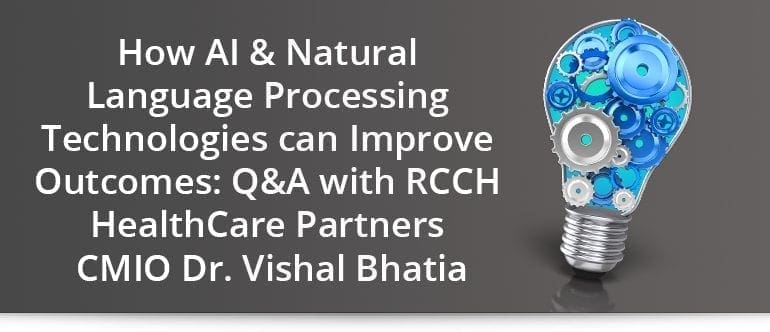Call us toll-free: 800-878-7828 — Monday - Friday — 8AM - 5PM EST

By Jackie Drees for Becker’s Hospital Review
Vishal Bhatia, MD, chief medical information officer at RCCH HealthCare Partners in Brentwood, Tenn., discusses the evolution of his role as CMIO and how artificial intelligence, natural language processing and voice recognition technologies can improve healthcare.
Responses are lightly edited for clarity and length.
Question: How has your role as CMIO evolved over the past two to three years? How have your responsibilities changed since you took on the role?
Dr. Vishal Bhatia: The role has changed from EMR governance and clinical informatics to clinical transformation and process improvement. This new shift includes clinical and operational efficiency to promote improved outcomes, propagate best practices and reduce care variation. A large part of that is data standardization, normalization and analysis to deliver desired results.
Q: What do you consider your No. 1 priority as CMIO? How do you ensure you’re successful?
VB: Interoperability and how to manage exchange of data without compromising provider workflow and efficiency.
We value end user input and ‘customizing’ workflow to local needs yet standardizing care and promoting evidence-based practices.
Q: Which apps and technologies do you find most helpful?
VB: AI and natural language processing in driving evidence-based practice and efficient workflow via real time analytics for best patient outcomes.
Q: How do you feel about the use of voice recognition technology, such as Amazon’s “Alexa” and Google Assistant, in healthcare? Is there a place for its use within the EHR?
VB: The use of voice recognition and improved natural language processing can provide a lot of efficiencies within the EHR. Some examples of this include voice search, data input, order queues, etc.
However, challenges the technology may pose with cloud-based, AI and machine learning technologies would be security and data privacy.
